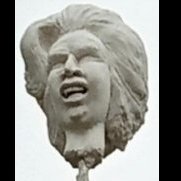Bangkok Pollution: one for the BKK long timers
-
Recently Browsing 0 members
- No registered users viewing this page.
-
Topics
-
Popular Contributors
-
Latest posts...
-
1,072
What Movies or TV shows are you watching (2025)
They have literally been pushing it for years... Never a good sign. That said, I like sci-fi, downloaded it a while back and will get around to watching it eventually. -
20
Friendship Supermarket Closed
Pretend I included Lazada in that short list, it's not difficult, I appreciate people like you go shopping for something to do -
276
The alarming mental decline of Donald J. Trump -- watch this space
You obviously are completely oblivious about the Lincoln Project and why it exists. And in the video, if you bothered to watch it, he did talk about Biden (forum rules; you are not supposed to use slur nicknames to describe people, otherwise we can say Donnie MumbleF**k). https://lincolnproject.us/ Yeah, you are right. The Lincoln Project exists to attack Trumpism, but from the perspective of dissatisfied GOPers (I suppose in British terms, the Wets). Why do you expect it to criticise anyone but Trump. Otherwise, why aren't you here yelling about Vance not complaining about Trump, or why does Alex Jones never bitch about MAGA, or when is Bannon going to come out with nice things to say about Marx (not Groucho). I'm sure you will find lots of examples, for a thread about Donald Trump, to attack Joe Biden and his mental acuity. This is a forum. You can start a topic on the subject, and surely fill you boots. Or you can continue to hijack and deflect, and avoid confronting a position. Do you believe Trump is a well man? Yes or no. Another Conservative worried about current Presidential health One loudmouth and colourful New Yorker hates another loudmouth and colourful New Yorker. Only one of them was the self made man. -
24
Louis Theroux: If you were shocked by my film on Israeli settlers in the West Bank, you ...
BRUQIN, West Bank (Reuters) -Israeli settlers torched Palestinian vehicles and houses in the occupied West Bank, Israel's army and villagers said, the latest in a series of attacks on the village of Bruqin, close to the location where a pregnant settler was killed this month. Palestinian residents in Bruqin, who say they have faced constant attacks and abuse from Israeli settlers nearby, said a large group had shown up during the night, throwing Molotov cocktails and beating anyone in their way. Akram Sabra, a resident of the village, said he had left his home to watch as dozens, possibly a hundred, people burned cars belonging to him and his family and threw a Molotov cocktail incendiary at his son's house. Israeli settlers raid West Bank village close to where pregnant woman killed -
13
Using Agent at Immigration - good idea?
Plastic bags full of cash.....come on, it is not as blatant as that..bit of fibbing on your part. -
40
Humza Yousaf: Immigration gamble by Labour a dangerous mistake
It seems that you are struggling to separate the holding of racist beliefs from actively being hostile to someone because of their race. That's for you to work out; I can't help you understand.
-
-
Popular in The Pub
-




.thumb.jpeg.d2d19a66404642fd9ff62d6262fd153e.jpeg)




.thumb.jpg.3ee24d9400fb02605ea21bc13b1bf901.jpg)



Recommended Posts
Create an account or sign in to comment
You need to be a member in order to leave a comment
Create an account
Sign up for a new account in our community. It's easy!
Register a new accountSign in
Already have an account? Sign in here.
Sign In Now